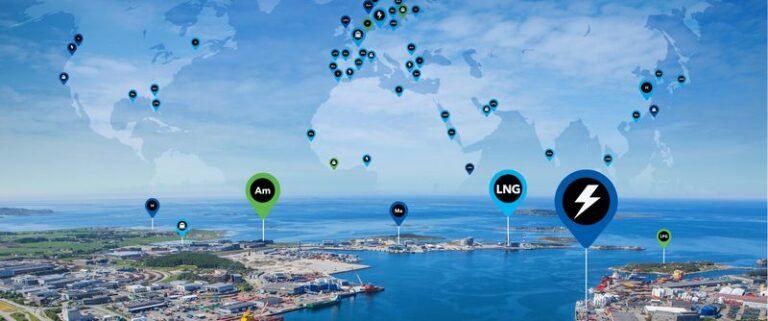The Maritime Industry’s Record Year for LNG-Fueled Ship Deliveries in 2024
Described as the maritime industry’s “exceptional newbuilding year”, 2024 yielded a record number of LNG-fueled ship deliveries, according to the latest data from DNV’s Alternative Fuels Insights (AFI) platform.
As the maritime industry reinforces its commitment to decarbonization, the last year was marked by a significant increase in alternative-fueled ship orders, with a total of 515 such ships on order (excluding LNG carriers), translating to a 38% year-on-year increase compared to 2023, AFI data shows.
Key Highlights of 2024
The container and car carrier segments dominated the order book, making up 62% of all alternative fuel orders in 2024. While methanol initially drove newbuilding orders for alternative-fueled vessels, LNG emerged as the industry’s fuel of choice by year-end. The number of LNG vessel orders placed in 2024 was 264, over double that of 2023 (130), DNV reported.
The number of LNG-powered ships in operation doubled between 2021 and 2024, with a record number of deliveries (169) noted in 2024. By the end of the year, 641 LNG-powered ships were in operation, a number expected to double by the end of the decade.
Due to the maturing LNG bunkering infrastructure, the number of LNG bunker vessels in operation grew from 52 to 64 over the last year, with further growth anticipated in 2025.
Future Outlook
The AFI orderbook predicts a widening gap between LNG bunkering supply and demand in the next five years. Addressing this challenge by developing appropriate infrastructure for alternative fuels is crucial for stimulating long-term fuel production. The availability of LNG in ports is expected to increase with the Fit for 55 setting requirements on a large network of ports.
In the container ship segment, 69% of all orders were for ships capable of being powered by alternative fuels, with LNG being the preferred choice (67%). However, 2024 also saw investments in multiple alternative fuels, with 166 methanol orders (32% of the AFI orderbook), reflecting the industry’s interest in a diverse fuel pool to reduce greenhouse gas emissions.
Ammonia also gained momentum in 2024, with 27 orders placed for ammonia-fueled vessels. This emerging trend, especially in non-gas carrier vessels like bulk carriers, indicates ammonia’s potential in the alternative fuel market.
Industry Leaders’ Perspectives
Knut Ørbeck-Nilssen, CEO Maritime at DNV, emphasized the need for collaboration to ensure a steady supply of alternative fuels while prioritizing seafarer safety during the transition to decarbonization.
Jason Stefanatos, Global Decarbonization Director at DNV, highlighted the evolving market conditions and the potential for green methanol and ammonia to complement LNG as part of the industry’s energy mix in the long run.
Overall, 2024 was a groundbreaking year for LNG-fueled ships, setting a new standard for the maritime industry’s transition towards sustainable and decarbonized operations. With continued investments in alternative fuels and infrastructure development, the industry is poised for further growth and innovation in the years to come.

